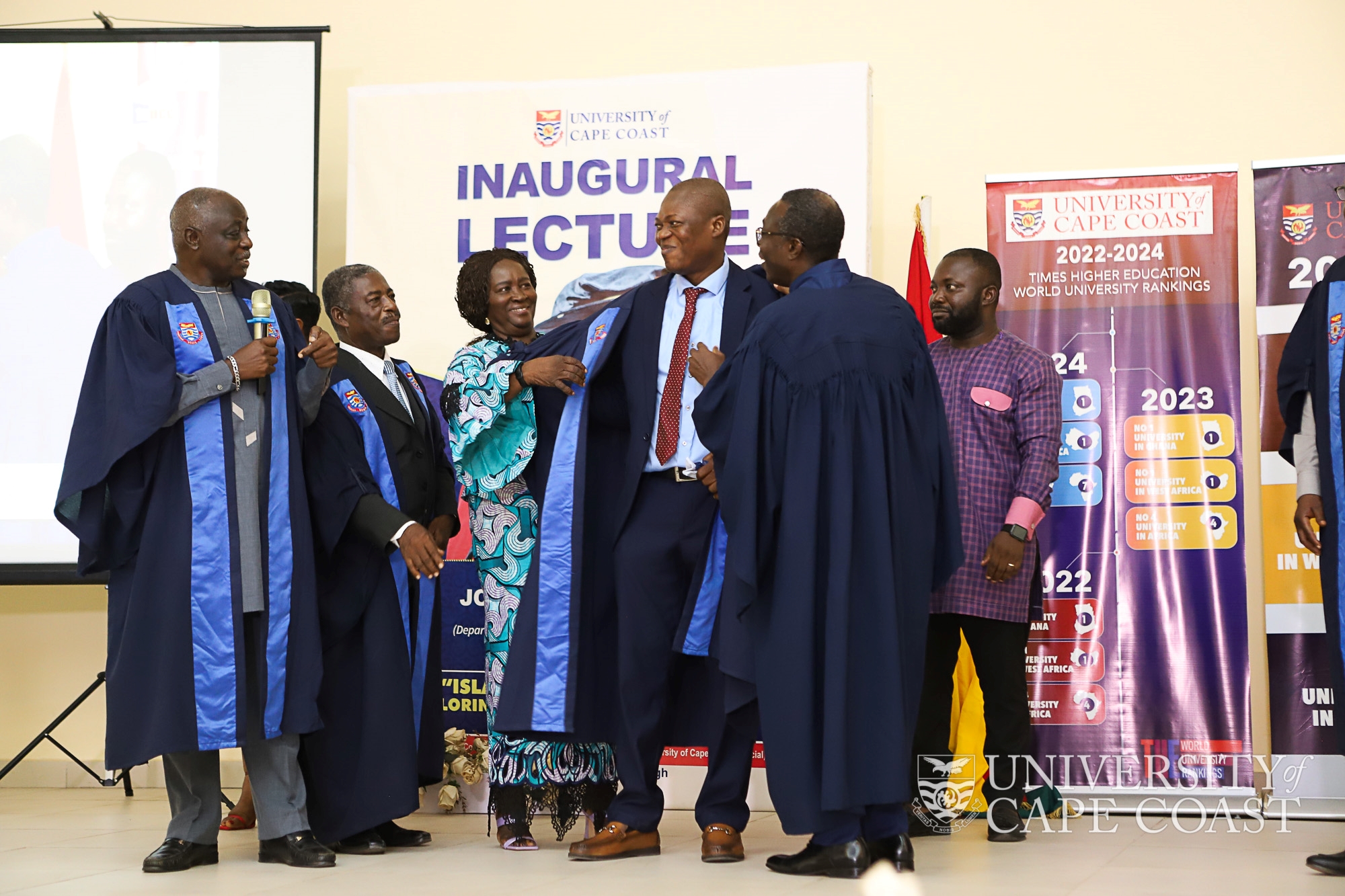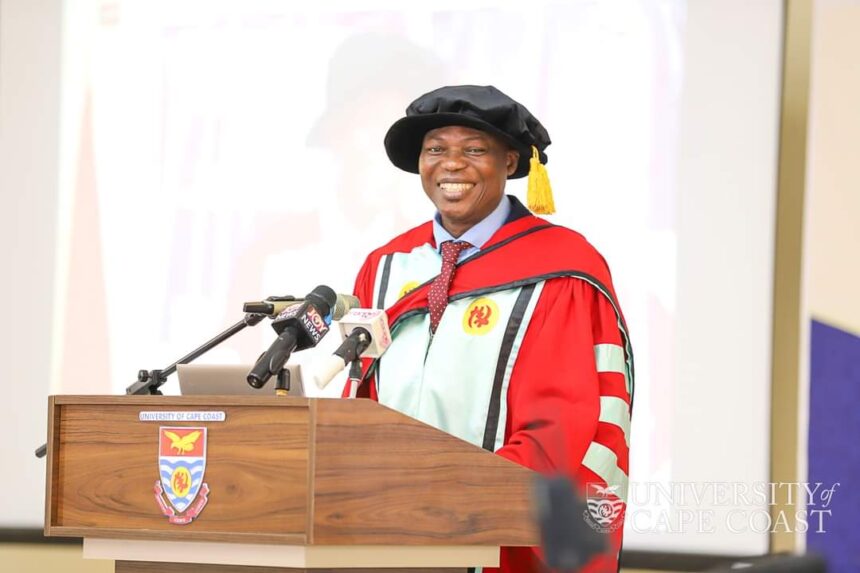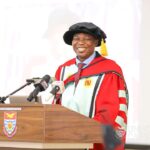A professor of Finance at the University of Cape Coast (UCC), Prof. John Gartchie Gatsi, has underscored the need for Ghana to adopt Islamic banking to promote financial inclusion and freedom of choice of financial products and services.
According to him, Islamic banking would considerably reduce untold poverty and burdensome project finance facing the country, whilst ensuring the promotion of social justice.
He maintained that Islamic banking had contributed to private-sector finance and governmental project finance through the public-private partnership (PPP) framework, stressing that PPP would enhance the diversification of infrastructure finance.
“It is high time, as a country, we began to explore Islamic banking options to provide some capital for infrastructure,” he added.
Prof Gatsi made these submissions at his inaugural lecture which was on the topic, “Islamic Banking Options: Exploring an Inclusive Alternative or Complement.”

The event
The event was attended by some past Vice-Chancellors of the University of Cape Coast, members of academia, financial experts, politicians, civil society organisations and other distinguished personalities.
Prof. Gatsi, who is also the Dean of the School of Business, reiterated recent calls for the Banks and Specialised Deposit-taking Institutions Act, 2016 (Act 930) to include ethical banking and achieve financial inclusion. He argued that the nation would bear the full brunt of hardship if the Bank of Ghana failed to amend the law to incorporate Islamic finance.
In the view of Prof Gatsi, the Act was enacted for conventional banks and needs to have legal flexibility for the governance structure, including Islamic banking.
“In other parts of the world, the hybrid model existing frameworks allowed conventional banks to create ethical finance widows and thus has allowed them to benefit from the best of both worlds…We need our legislation to be adjusted or we will fail to reap the overwhelming benefits that ethical finance provides,” he explained.
To him, the growth of Islamic banking in non-Muslim countries proves that its benefits go beyond the issue of ethical finance. He pointed out that Islamic banking should be viewed from a financial inclusion perspective and not from a religious viewpoint.
He mentioned environmental degradation and alcoholic beverages as some of the prohibitions that make the size of Islamic banking transactions smaller than conventional banking.
Prof. Gatsi mentioned capacity building for court staff, the composition of the membership of the Shariah Supervisory Board as well as the lack of uniformity in the application of Islamic law by different Muslim faiths as some of the challenges that would face the establishment of Islamic bank in Ghana.
He, therefore, proposed that the Bank of Ghana (BOG) should create the environment for the adoption of Islamic banking, as well as contribute to meeting the SDGs.
“The Shariah Board should reflect secular democratic values. Additionally, Islamic banking will deepen entrepreneurial support,” Prof. Gatsi stated.
The event was chaired by. Prof. Johnson Nyarko Boampong, Vice-Chancellor of the UCC.
Timeline of key events in Prof. John Gatsi’s life:
- Hails from Devego in the Volta Region
- 1988: Completed Ohawu R/C Primary and L/A Middle School
- 1993: Obtained General Certificate of Education (GCE) Ordinary Level Certificate (Science) at Keta Secondary Technical School
- 1995: Enrolled at Keta Secondary Technical School for sixth-form education, obtaining GCE Advanced Level.
- 1997: Gained admission at the University of Ghana (UG) to read Bachelor of Science in Administration, withAccounting option.
- 2000: Completed University of Ghana
- 2003/2004-2006: He was offered admission to read Master of Science in International Accounting at Gothenburg University, Sweden.
- 2007: Employed at the University of Cape Coast as a lecturer to teach Finance and related courses.
- 2011: Obtained a Bachelor of Laws (LL.B) from the University of Ghana Law School.
- 2012: Promoted to the rank of Senior Lecturer
- 2014:Obtained PhD in Finance from Central University of Nicaragua
- 2016: Adjudged the Best Lecturer by the UCC-SRC
- 2016: Promoted to the rank of Associate Professor
- 2016-2019: Served as Head of the Department of Finance
- 2017: Called to the Bar after completing the professional Law Program at the Ghana School of Law
- Since 2017 till date: He has supervised 12 M.Com students and 22 MBA students
- 2019: Appointed Dean of the School of Business and will end his term in office in July 2025
- 2020: Promoted to full Professor of Finance
- 29 February 2024: Delivered inaugural lecture on the topic: ” Islamic Banking Options: Exploring an Inclusive Alternative or Complement”.








